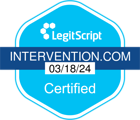Addiction is a complex and multifaceted issue that affects millions of individuals and their families worldwide. While various factors contribute to the development of addiction, unresolved emotional pain remains one of the most significant underlying causes, and trauma intervention programs help address this.
Specialized recovery services play a crucial role in addressing these root causes, offering a pathway to recovery that goes beyond mere symptom management.
We aim to help families work together to achieve more good and less bad for all, by providing ethical and effective support through innovative family resource services.
Understanding the Connection Between Trauma and Addiction
Emotional wounds, whether experienced in childhood or as an adult, can have profound effects on an individual’s mental and emotional well-being. When these experiences are not adequately addressed, individuals may turn to substances as a coping mechanism to numb emotional pain or escape from distressing memories. This self-medication can quickly escalate into addiction, creating a vicious cycle that is difficult to break without structure.
Common Types of Trauma Leading to Addiction
- Childhood Abuse: Physical, emotional, or sexual abuse during formative years can lead to long-term psychological issues.
- Domestic Violence: Exposure to domestic violence can instill fear, anxiety, and a sense of helplessness.
- Loss of a Loved One: Grieving the loss of a family member or friend can trigger substance use as a way to manage overwhelming emotions.
- Accidents or Natural Disasters: Experiencing or witnessing traumatic events like accidents or natural disasters can result in PTSD and subsequent addiction.
The Role of Trauma Intervention Programs
These services are designed to address the deep-seated emotional wounds that contribute to addiction. Utilizing a variety of therapeutic techniques, they help individuals process their experiences and develop healthier coping mechanisms.
Key Components
- Comprehensive Assessment: Understanding the individual’s history and the specific challenges that have impacted their life.
- Therapeutic Counseling: Providing one-on-one or group therapy sessions to explore and process difficult experiences.
- Skill Building: Teaching coping strategies and life skills to manage stress and emotions without relying on substances.
- Family Involvement: Engaging family members in the recovery process to rebuild trust and support systems.
- Aftercare Planning: Ensuring continued support and resources post-treatment to maintain sobriety and emotional health.
Evidence-Based Therapies That Have Been Used
- Cognitive Behavioral Therapy (CBT): Helps individuals identify and change negative thought patterns related to painful memories and addiction.
- Eye Movement Desensitization and Reprocessing (EMDR): Assists in processing and integrating difficult memories.
- Dialectical Behavior Therapy (DBT): Focuses on emotional regulation and interpersonal effectiveness.
Benefits of Addressing Trauma in Addiction Recovery
Tackling the emotional origins of addiction through intervention offers numerous benefits, both for the individual and their loved ones.
- Enhanced Emotional Stability: By processing past painful experiences, individuals can achieve greater emotional stability, reducing the reliance on substances to manage their feelings.
- Improved Relationships: Family involvement fosters better communication and understanding, strengthening familial bonds and support networks.
- Sustainable Recovery: Addressing root causes provides a solid foundation for long-term sobriety, as individuals are equipped with tools to handle future stressors without substance use.
- Holistic Healing: These programs promote overall well-being, encompassing mental, emotional, and physical health, leading to a more balanced and fulfilling life.
Challenges and Solutions in Implementation
While these programs are highly effective, implementing them can present several challenges. Understanding these obstacles and addressing them proactively is crucial for success.
Common Challenges
- Stigma Surrounding Emotional Pain and Addiction: Many individuals feel ashamed or embarrassed, making them reluctant to seek help.
- Lack of Access to Specialized Care: Not all treatment centers are equipped to handle trauma-focused intervention, limiting options for those in need.
- Financial Barriers: The cost of comprehensive programs can be prohibitive for some families.
- Complexity of Treatment: Addressing both emotional wounds and addiction simultaneously requires a coordinated and multifaceted approach, which can be challenging to manage.
Effective Solutions
- Raising Awareness: Educating the public about the connection between trauma and addiction can reduce stigma and encourage more individuals to seek help.
- Expanding Access to Care: Increasing the availability of specialized trauma intervention programs ensures that more individuals can receive the support they need.
- Financial Assistance Programs: Offering sliding scale fees, grants, or insurance options can make intervention more accessible to those with financial constraints.
- Integrated Treatment Models: Developing treatment plans that simultaneously address trauma and addiction can streamline care and improve outcomes.
Overcoming Stigma in Trauma and Addiction Recovery
Stigma remains one of the biggest barriers to seeking help. Overcoming this stigma is essential for individuals to access the care they need and for society to support their recovery journey.
Strategies to Reduce Stigma
- Education and Awareness Campaigns: Increasing public knowledge about the link between trauma and addiction can help change perceptions and reduce judgment.
- Open Conversations: Encouraging open and honest discussions about these issues can normalize seeking help and support.
- Advocacy and Support Groups: Supporting advocacy initiatives and participating in support groups can empower individuals and communities to combat stigma.
The Role of Intervention.com
At Intervention.com, we actively work to dismantle the stigma associated with trauma and addiction. By providing compassionate and ethical support, we create an environment where individuals feel safe to seek help and embark on their recovery journey without fear of judgment.
Addressing Co-Occurring Disorders in Programs
Many individuals struggling with addiction and emotional pain also face co-occurring mental health disorders such as depression, anxiety, or bipolar disorder. Effective trauma intervention programs recognize and address these overlapping issues to provide comprehensive care.
Importance of Dual Diagnosis Treatment
- Comprehensive Care: Treating both addiction and mental health disorders simultaneously ensures that all aspects of an individual’s well-being are addressed.
- Improved Recovery Rates: Addressing co-occurring disorders can lead to more sustainable recovery by preventing relapse triggered by untreated mental health issues.
- Personalized Treatment Plans: Tailoring treatment to include both addiction and mental health support ensures that each individual’s unique needs are met.
How Intervention.com Supports Trauma-Focused Recovery
At Intervention.com, we are committed to providing comprehensive support for families facing addiction. Our programs are designed to provide ethical, legal, and effective care that focuses on real help for all involved.
Our Unique Approach
- Fair Care Promise: We uphold the highest ethical standards, ensuring that every family receives honest and compassionate support without engaging in unethical practices.
- Expert Intervention Specialists: Led by Brad Lamm, CIP, our team has managed over one thousand cases and collaborated with top specialists in the field.
- Comprehensive Resources: From browsing alcohol rehabs to drug rehabs, we offer a wealth of resources to guide families through the recovery journey.
Implementation: A Step-by-Step Guide
Implementing an effective program involves several critical steps. Here’s how Intervention.com approaches this process:
- Step 1: Initial Assessment
Our specialists conduct a thorough assessment to understand the individual’s history and addiction patterns. This involves detailed interviews and questionnaires to tailor the program to each person’s unique needs. - Step 2: Developing a Treatment Plan
Based on the assessment, a personalized treatment plan is created, incorporating evidence-based therapies and support systems to address both trauma and addiction. - Step 3: Engaging the Family
Families play a pivotal role in the recovery process. We facilitate family therapy sessions to rebuild trust, improve communication, and create a supportive home environment. - Step 4: Ongoing Support and Aftercare
Recovery is an ongoing journey. Our programs include aftercare planning to ensure continued support, access to resources, and strategies to maintain sobriety and emotional health.
The Importance of Ethical Standards
Ethical standards are at the core of our operations. Our Fair Care Promise ensures that families receive honest, transparent, and compassionate support. We do not sell calls or engage in practices that violate our commitment to ethical care, setting us apart as a trusted leader in the field of addiction intervention.
Why Ethics Matter
- Trust Building: Ethical practices foster trust between families and specialists, which is crucial for effective treatment.
- Client Safety: Ensuring that all interventions are conducted legally and ethically protects the well-being of those involved.
- Quality of Care: Upholding high ethical standards guarantees that the care provided is of the highest quality, leading to better outcomes.
Choose the Right Program Today
Intervention programs are essential in addressing the root causes of addiction, offering a pathway to lasting recovery by healing the emotional wounds that fuel substance use. We are dedicated to providing ethical, comprehensive support to families, ensuring that every individual has the opportunity to overcome addiction and lead a fulfilling, healthy life.
By focusing on both trauma and addiction, our programs create a foundation for sustainable recovery and overall well-being. If you or a loved one is struggling with addiction, reach out to our team of experienced intervention specialists today. Together, we can work towards More Good – Less Bad for all.

